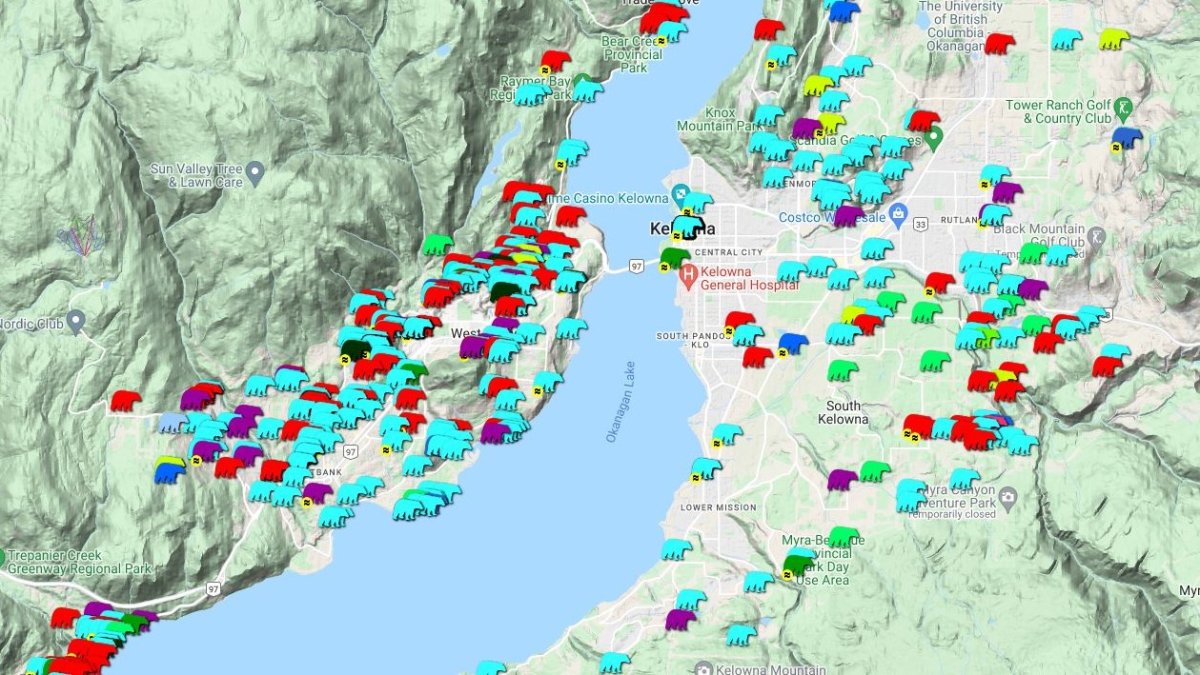It was an exceptionally busy year for bear sightings, West Kelowna city council will hear next week.

On Tuesday, WildSafeBC will present its annual Okanagan Westside report, which notes 412 black bear sightings in 2021, nearly double the previous yearly average of 231.
“The increase in black bear reports this year is likely due to a combination of drought conditions that reduced natural food availability and nearby wildfires that resulted in bears needing to move to adjacent habitats,” reads part of the report.
By comparison, deer were the next reported species at 227 – double the yearly average – followed by reports of coyotes (23) and cougars (16).
The Westside program covers West Kelowna, Westbank First Nation, Peachland and west electoral area of the Central Okanagan regional district.

Get breaking National news
According to WildSafeBC, in August, when there were two active wildfires in the area, there were 111 black bear reports, up from the monthly average of 31. Or, put another way, an increase of 358 per cent.
“Similarly, September, October and November were far above average with increases in black bear reports by 236 per cent, 205 per cent and 179 per cent, respectively,” said WildSafe BC.

“While it is normal to see an increase in black bear reports during the fall, as bears are increasing their foraging to prepare for winter denning, the substantial increase this year over the previous five years suggests exceptional circumstances.
“With the uncertainty in future environmental conditions due to climate change, there may continue to be increases in human-bear conflicts locally.”
The report can be viewed on the City of Kelowna’s website.





Comments